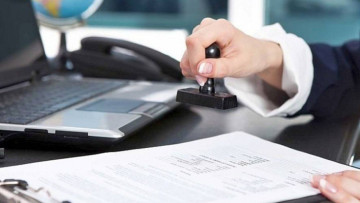I am studying in the third year of the State University of Economics and Technology.I specialize in contractual, economic and corporate law, in particular, I provide consultations and write articles.
Real estate fraud is a serious problem that can lead to large financial losses and legal complications. This phenomenon includes a variety of schemes and practices used by criminals to defraud real estate buyers or sellers. Let's look at the main aspects of real estate fraud, as well as how to prevent and respond to such situations.
Types of real estate fraud
- Use of forged documents to prove ownership of real estate or to execute transactions.
- Cases where criminals gain access to the owner's documents and reregister the property in their own name without the knowledge or consent of the real owner.
- Fraudsters posing as real estate agents or notaries without real authority or accreditation.
- Schemes in which fraudsters rent out real estate that they do not own or that is already leased from another person.
- Cases when unrealistically favorable conditions for the purchase or sale of real estate are offered, leading to significant financial losses.
Property inspection before purchase
The procedure of verifying the owner of the property during the purchase is critical to ensure the security of the transaction and protection against possible fraudulent schemes. Here is a step-by-step guide on how to perform such a check:
- Verification of the owner's documents: Make sure that the owner's passport and identification code are valid. Pay attention to the presence of possible fakes or signs of falsification. Make sure that the information in the passport matches the information in other documents, such as a certificate of ownership of real estate. Review the title deed or other documents proving ownership of the property. Make sure the owner is listed on these documents. Check the latest ownership registration in the state real estate register.
- Property title check: Use state real estate registries to check the current property title status. In Ukraine, information can be checked through the Public Cadastral Register or the Information Portal of the State Register of Real Property Rights. Submit a request for an extract from the register that confirms ownership and information about possible encumbrances. Make sure there are no encumbrances, liens, liens or other legal restrictions on the property that could affect the purchase.
- Legal status check: If the seller is a legal entity (business or organization), check its registration documents, articles of association, power of attorney, as well as legal status and activities through the relevant authorities. Check to see if the owner is in bankruptcy or has other legal issues that could affect their ability to sell the property.
- Ownership History Check: Research the ownership history of the property to ensure that all previous transactions were legitimate. Check the documents of the previous owners to make sure that ownership was transferred according to the law.
- Verification of powers of attorney and representatives: If the agreement is represented by a proxy, verify the authenticity of the power of attorney, its validity and authority. Make sure that the power of attorney is registered with a notary public and complies with the law.
- Execution of the agreement: Make sure that all the terms of the agreement are clearly spelled out and agreed upon. The agreement must be in writing and signed by both parties. Most real estate transactions require a notarial certificate. Make sure the agreement is notarized, if required by law. After concluding the agreement, it is necessary to register the new right of ownership in the state register, which is the final stage of the purchase process.
Question
What is the importance of a good choice of a notary in real estate transactions?
Answer
An unverified notary can carry out operations for the benefit of third parties or be part of a fraudulent scheme. Make sure the notary has a good reputation, and check their license and reviews. Reliable verification guarantees the reduction of the risk of fraud and compliance with the legality of all registration actions.
Question
Is it possible to establish a ban on registration actions with real estate?
Answer
A mortgage is the best way to protect real estate by entering into a mortgage agreement that will encumber the real estate and prevent its sale or other actions without your consent. A mortgage provides protection against improper use of real estate and has priority over other encumbrances. Ease and speed of implementation, as well as the possibility of saving the encumbrance when the owner changes.
The property owner verification process is an important part of the buying process, helping to avoid fraud and ensure the legitimacy of the transaction. Following these steps and consulting with specialists will protect your interests and ensure the successful completion of the transaction.
Real estate lawyer consultation
If you have been a victim of real estate fraud or suspect that one has occurred, the services of a ask a real estate lawyer a question can be extremely helpful. Here are the key services of a real estate lawyer:
Real estate consultation: A real estate lawyer will conduct a detailed analysis of your situation, including a review of documents and agreements, to determine if fraud is taking place. Online real estate lawyer consultation will provide recommendations on further actions to protect your rights and interests.
Helping a real estate lawyer to gather evidence: A real estate transaction lawyer will help you gather evidence, such as correspondence, documents, witness statements, that can prove the fact of fraud. Conducts a legal evaluation of the collected evidence and determines which of them have legal force.
Filing applications and complaints: A real estate lawyer online will prepare and file a complaint with the police or prosecutor's office about fraud. Will prepare and file a lawsuit to protect your rights, compensate for damages or cancel illegal agreements. Prepares and submits claims to relevant persons or companies for compensation of material losses. Will evaluate opportunities to recover damages through insurance or other sources.
Legal support: A lawyer real estate transactions will represent your interests in negotiations with other parties, such as sellers, realtors, notaries. Will represent your interests in court hearings, protecting your rights. It will help to challenge illegal registration actions regarding real estate in court. Prepares applications and petitions for correction of errors in registration documents.
Real estate fraud can have serious consequences, so it's important to take every precaution to prevent such situations and be prepared to act if they do occur. Verification of documents, real estate lawyer assistance of agreements, correct identification of all parties and timely appeal to the relevant authorities will help reduce risks and protect your rights. Consulting a real estate legal advice will help you not only in cases of fraud, but also in preventive measures to prevent such situations in the future.




































